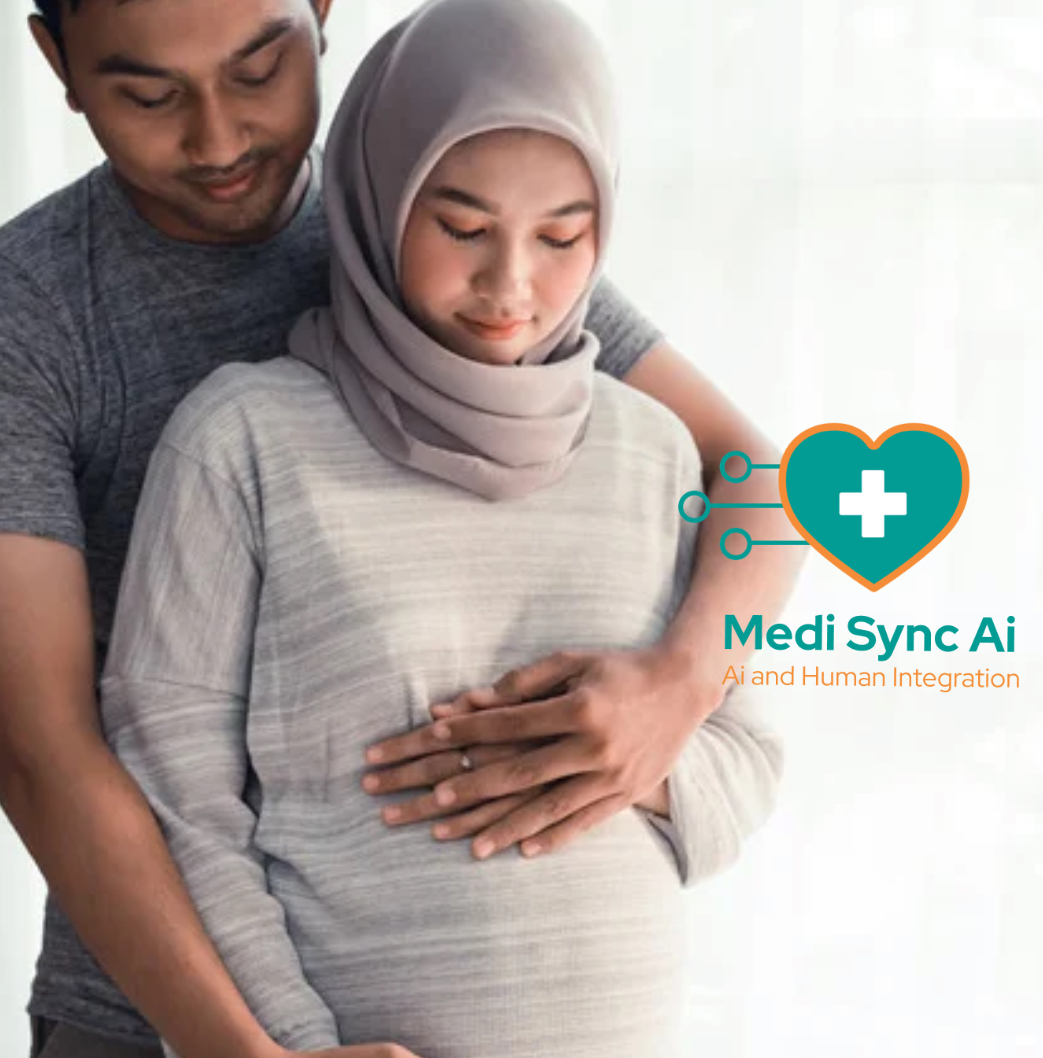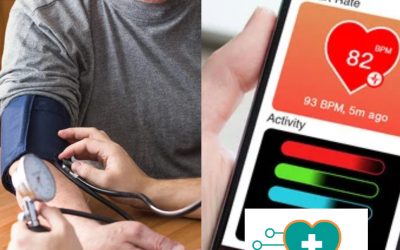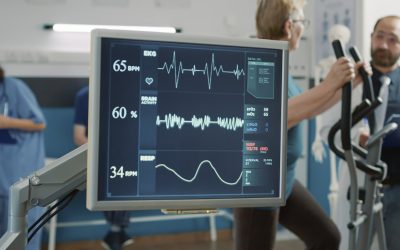Pregnancy is a critical time for both the mother and the developing baby. Effective monitoring during pregnancy can help prevent complications, improve maternal and fetal health outcomes, and ensure a smooth journey toward childbirth. However, traditional prenatal care, while effective, often requires frequent in-person visits that can be cumbersome, especially for women with high-risk pregnancies, those living in rural or underserved areas, or those with busy lifestyles.
Remote Patient Monitoring (RPM) is revolutionizing the way pregnancy care is delivered by enabling healthcare providers to monitor expectant mothers remotely. By utilizing advanced technology to collect real-time data and providing continuous support, RPM makes it possible to manage pregnancy more efficiently and proactively.
At MediSyncAI, we understand that RPM for pregnancy represents not only the future of prenatal care but also a pathway to better outcomes for both mother and child. This blog explores the concept of RPM during pregnancy, its key benefits, and why MediSyncAI is a leader in this space.
What is RPM for Pregnancy?
Remote Patient Monitoring (RPM) refers to the use of technology to track, monitor, and collect data on a patient’s health remotely. In the context of pregnancy, RPM tools enable healthcare providers to collect vital information about the mother’s health and the development of the fetus without requiring regular trips to a clinic or hospital.
Key Components of RPM for Pregnancy
RPM for pregnancy typically includes the use of wearable devices and connected sensors that monitor key aspects of maternal and fetal health. These devices collect data that can be transmitted to healthcare providers in real-time. Some common RPM tools for pregnancy include:
Blood Pressure Monitors: Tracking maternal blood pressure is essential for detecting conditions like preeclampsia, which can cause complications during pregnancy.
Fetal Heart Rate Monitors: Devices that measure fetal heart rates can alert providers to potential distress or health issues.
Weight Scales: Regular tracking of maternal weight can help identify potential complications, such as gestational diabetes or preeclampsia.
Blood Glucose Monitors: Monitoring blood sugar levels is vital for pregnant women, especially those at risk of gestational diabetes.
Movement Sensors: These track fetal movements and can help detect signs of fetal distress.
RPM for pregnancy is more than just a convenience. It allows for continuous monitoring of high-risk pregnancies, enabling early intervention when issues arise. This can ultimately improve maternal health outcomes and the health of the fetus.
Benefits of RPM During Pregnancy
RPM for pregnancy brings a host of benefits for both patients and healthcare providers. By leveraging technology, expectant mothers can receive continuous monitoring and personalized care without the need for frequent office visits. Here are some of the key benefits:
Early Detection of Health Complications
RPM enables real-time monitoring of both maternal and fetal health, making it easier to detect complications early. For instance, conditions like preeclampsia, gestational diabetes, and high blood pressure can be identified before they become serious problems. Early detection enables healthcare providers to intervene quickly, which can improve outcomes for both the mother and the baby.
Case Study:
A study published by the American Journal of Obstetrics and Gynecology found that RPM for pregnancy led to early detection of high blood pressure and improved management of gestational diabetes, leading to better health outcomes for both mothers and babies.
Reduced Need for In-Person Visits
Traditional prenatal care often requires frequent visits to healthcare facilities, which can be time-consuming and stressful for expectant mothers. RPM reduces the need for in-person visits by allowing providers to monitor key health indicators remotely. This flexibility is particularly helpful for women who may live in rural areas or have limited access to healthcare facilities.
In addition to reducing the time spent in waiting rooms, RPM helps eliminate the need for unnecessary hospital visits, reducing healthcare costs and increasing the overall efficiency of pregnancy care.
Increased Convenience and Accessibility
By allowing healthcare providers to monitor the pregnancy remotely, RPM gives expectant mothers more control over their care. Patients can submit vital signs and other health information from the comfort of their homes, and they can receive alerts and guidance from their providers in real-time. This convenience improves patient engagement and compliance with care plans.
Moreover, RPM provides access to high-quality care for women who might not otherwise have access to it, such as those in underserved areas or those who have difficulty attending regular check-ups.
Empowering Expectant Mothers with Knowledge
RPM tools not only monitor health data but also empower expectant mothers with valuable insights into their pregnancy. For example, pregnant women can track their blood pressure, weight, and glucose levels in real time, which helps them better understand their health and make informed decisions.
This data can also be shared directly with healthcare providers, enabling more personalized and targeted care. Patients are more likely to adhere to treatment recommendations and make lifestyle changes when they are actively involved in the process.
Better Outcomes for High-Risk Pregnancies
Women with high-risk pregnancies, including those with chronic health conditions like diabetes or hypertension, greatly benefit from RPM. By constantly monitoring these conditions, healthcare providers can address concerns and intervene early, preventing the escalation of health issues. For example, gestational diabetes can be better managed with regular remote glucose monitoring, reducing the risk of complications for both the mother and the baby.
Data-Driven Decision Making
RPM collects continuous streams of data that can be analyzed by healthcare providers to identify patterns and predict potential issues. By integrating AI and machine learning algorithms into RPM platforms, healthcare providers can better interpret the data and make data-driven decisions to optimize care. For instance, AI-powered systems can predict fetal health issues by analyzing data trends over time, allowing for more effective intervention.
Why Choose MediSyncAI for RPM During Pregnancy?
While RPM for pregnancy can offer numerous benefits, successful implementation requires not just the right technology but also expertise and support from clinical service providers. This is where MediSyncAI excels.
At MediSyncAI, we provide AI-driven RPM solutions designed specifically for pregnancy care. Our platform goes beyond basic remote monitoring to deliver personalized, data-backed care for expectant mothers. Here’s why MediSyncAI is the right choice for RPM during pregnancy:
AI-Powered Analytics for Proactive Care
Our platform leverages AI and predictive analytics to identify early warning signs of pregnancy complications, such as preeclampsia, gestational diabetes, and fetal distress. With real-time data and automated alerts, healthcare providers can intervene early and provide timely care that reduces risks and improves outcomes.
Seamless Integration with Existing Healthcare Systems
MediSyncAI’s RPM solutions integrate smoothly with existing electronic health records (EHRs) and other healthcare systems. This ensures that patient data is easily accessible and can be shared across care teams for comprehensive, coordinated care.
Comprehensive Monitoring and Support
We offer a wide range of wearable devices and sensors that monitor key maternal and fetal health metrics, including blood pressure, glucose levels, and fetal heart rate. Additionally, MediSyncAI offers continuous clinical support to help providers manage patient care effectively.
Enhanced Data Security and Compliance
Patient data security is our top priority. MediSyncAI ensures that all data collected through RPM is stored securely and complies with HIPAA regulations to maintain privacy and confidentiality. Our platform also supports regulatory compliance, ensuring that healthcare providers can confidently implement RPM solutions within existing legal frameworks.
Personalized, Patient-Centered Care
At MediSyncAI, we understand that each pregnancy is unique. Our RPM solutions are fully customizable to meet the needs of each patient, offering personalized care that empowers expectant mothers to monitor and manage their health. Whether it’s addressing specific health risks or providing additional support, MediSyncAI tailors care to ensure the best possible outcomes.
Remote Patient Monitoring (RPM) is transforming pregnancy care by offering continuous, data-driven insights that allow healthcare providers to deliver better, more proactive care. RPM offers a range of benefits for expectant mothers, including early detection of complications, convenience, and improved health outcomes.
MediSyncAI stands at the forefront of this transformation, providing innovative RPM solutions that combine cutting-edge AI technology, seamless integration, and personalized care. By choosing MediSyncAI, healthcare providers can improve the care they deliver during pregnancy, leading to healthier mothers and babies.
As RPM for pregnancy continues to grow and evolve, the future of maternal care is bright. With MediSyncAI leading the way, expectant mothers can look forward to safer, more connected, and more informed pregnancies.
Ready to transform pregnancy care with RPM? Contact MediSyncAI today and discover how our solutions can improve outcomes for both mothers and babies.





